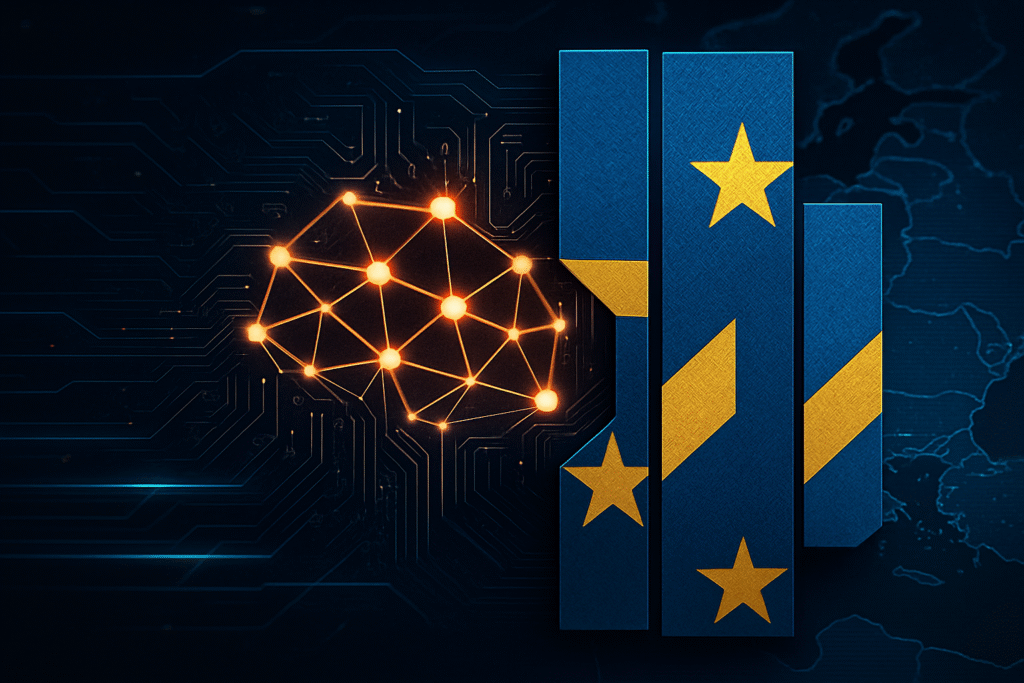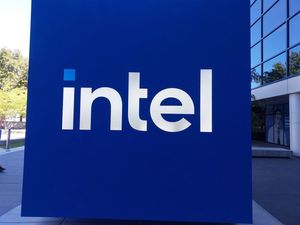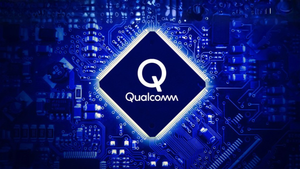
In a series of pointed criticisms that have sent ripples through the European technology landscape, leaders from Dutch chip giant ASML Holding N.V. (ASML:AMS) have publicly admonished the European Union for its perceived inaccessibility to Europe's own tech companies and its often-unrealistic ambitions. These strong remarks, particularly from former CEO Peter Wennink, current CEO Christophe Fouquet, and Executive Vice President of Global Public Affairs Frank Heemskerk, highlight deep-seated concerns about the bloc's ability to foster a competitive and resilient semiconductor industry. Their statements, resonating in late 2025, underscore a growing frustration among key industrial players who feel disconnected from the very policymakers shaping their future, posing a significant threat to the EU's strategic autonomy goals and its standing in the global tech race.
The immediate significance of ASML's outspokenness cannot be overstated. As a linchpin of the global semiconductor supply chain, manufacturing the advanced lithography machines essential for producing cutting-edge chips, ASML's perspective carries immense weight. The criticisms directly challenge the efficacy and implementation of the EU Chips Act, a flagship initiative designed to double Europe's global chip market share to 20% by 2030. If Europe's most vital technology companies find the policy environment prohibitive or unsupportive, the ambitious goals of the EU Chips Act risk becoming unattainable, potentially leading to a diversion of critical investments and talent away from the continent.
Unpacking ASML's Grievances: A Multifaceted Critique of EU Tech Policy
ASML's leadership has articulated a comprehensive critique, touching upon several critical areas where EU policy and engagement fall short. Former CEO Peter Wennink, in January 2024, famously dismissed the EU's 20% market share goal for European chip producers by 2030 as "totally unrealistic," noting Europe's current share is "8% at best." He argued that current investments from major players like Taiwan Semiconductor Manufacturing Company (TSMC:TPE), Robert Bosch GmbH, NXP Semiconductors N.V. (NXPI:NASDAQ), and Infineon Technologies AG (IFX:ETR) are insufficient, estimating that approximately a dozen new fabrication facilities (fabs) and an additional €500 billion investment would be required to meet such targets. This stark assessment directly questions the foundational assumptions of the EU Chips Act, suggesting a disconnect between ambition and the practicalities of industrial growth.
Adding to this, Frank Heemskerk, ASML's Executive Vice President of Global Public Affairs, recently stated in October 2025 that the EU is "relatively inaccessible to companies operating in Europe." He candidly remarked that "It's not always easy" to secure meetings with top European policymakers, including Commission President Ursula von der Leyen. Heemskerk even drew a sharp contrast, quoting a previous ASML executive who found it "easier to get a meeting in the White House with a senior official than to get a meeting with a commissioner." This perceived lack of proactive engagement stands in sharp opposition to experiences elsewhere, such as current CEO Christophe Fouquet's two-hour meeting with Indian Prime Minister Narendra Modi, where Modi actively sought input, advising Fouquet to "tell me what we can do better." This highlights a significant difference in how industrial leaders are engaged at the highest levels of government, potentially putting European companies at a disadvantage.
Furthermore, both Wennink and Fouquet have expressed deep concerns about the impact of geopolitical tensions and US-led export controls on advanced chip-making technologies, particularly those targeting China. Fouquet, who took over as CEO in April 2025, labeled these bans as "economically motivated" and warned against disrupting the global semiconductor ecosystem, which could lead to supply chain disruptions, increased costs, and hindered innovation. Wennink previously criticized such discussions for being driven by "ideology" rather than "facts, content, numbers, or data," expressing apprehension when "ideology cuts straight through" business operations. Fouquet has urged European policymakers to assert themselves more, advocating for Europe to "decide for itself what it wants" rather than being dictated by external powers. He also cautioned that isolating China would only push the country to develop its own lithography industry, ultimately undermining Europe's long-term position.
Finally, ASML has voiced significant irritation regarding the Netherlands' local business climate and attitudes toward the tech sector, particularly concerning "knowledge migrants" – skilled international workers. With roughly 40% of its Dutch workforce being international, ASML's former CEO Wennink criticized policies that could restrict foreign talent, warning that such measures could weaken the Netherlands. He also opposed the idea of teaching solely in Dutch at universities, emphasizing that the technology industry operates globally in English and that maintaining English as the language of instruction is crucial for attracting international students and fostering an inclusive educational environment. These concerns underscore a critical bottleneck for the European semiconductor industry, where a robust talent pipeline is as vital as financial investment.
Competitive Whirlwind: How EU Barriers Shape the Tech Landscape
ASML's criticisms resonate deeply within the broader technology ecosystem, affecting not just the chip giant itself but also a multitude of AI companies, tech giants, and startups across Europe. The perceived inaccessibility of EU policymakers and the challenging business climate could lead ASML, a cornerstone of global technology, to prioritize investments and expansion outside of Europe. This potential diversion of resources and expertise would be a severe blow to the continent's aspirations for technological leadership, impacting the entire value chain from chip design to advanced AI applications.
The competitive implications are stark. While the EU Chips Act aims to attract major global players like TSMC and Intel Corporation (INTC:NASDAQ) to establish fabs in Europe, ASML's concerns suggest that the underlying policy framework might not be sufficiently attractive or supportive for long-term growth. If Europe struggles to retain its own champions like ASML, attracting and retaining other global leaders becomes even more challenging. This could lead to a less competitive European semiconductor industry, making it harder for European AI companies and startups to access cutting-edge hardware, which is fundamental for developing advanced AI models and applications.
Furthermore, the emphasis on "strategic autonomy" without practical support for industry leaders risks disrupting existing products and services. If European companies face greater hurdles in navigating export controls or attracting talent within the EU, their ability to innovate and compete globally could diminish. This might force European tech giants to re-evaluate their operational strategies, potentially shifting R&D or manufacturing capabilities to regions with more favorable policy environments. For smaller AI startups, the lack of a robust, accessible, and integrated semiconductor ecosystem could mean higher costs, slower development cycles, and reduced competitiveness against well-resourced counterparts in the US and Asia. The market positioning of European tech companies could erode, losing strategic advantages if the EU fails to address these foundational concerns.
Broader Implications: Europe's AI Future on the Line
ASML's critique extends beyond the semiconductor sector, illuminating broader challenges within the European Union's approach to technology and innovation. It highlights a recurring tension between the EU's ambitious regulatory and strategic goals and the practical realities faced by its leading industrial players. The EU Chips Act, while well-intentioned, is seen by ASML's leadership as potentially misaligned with the actual investment and operational environment required for success. This situation fits into a broader trend where Europe struggles to translate its scientific prowess into industrial leadership, often hampered by complex regulatory frameworks, perceived bureaucratic hurdles, and a less agile policy-making process compared to other global tech hubs.
The impacts of these barriers are multifaceted. Economically, a less competitive European semiconductor industry could lead to reduced investment, job creation, and technological sovereignty. Geopolitically, if Europe's champions feel unsupported, the continent's ability to exert influence in critical tech sectors diminishes, making it more susceptible to external pressures and supply chain vulnerabilities. There are also significant concerns about the potential for "brain drain" if restrictive policies regarding "knowledge migrants" persist, exacerbating the already pressing talent shortage in high-tech fields. This could lead to a vicious cycle where a lack of talent stifles innovation, further hindering industrial growth.
Comparing this to previous AI milestones, the current situation underscores a critical juncture. While Europe boasts strong AI research capabilities, the ability to industrialize and scale these innovations is heavily dependent on a robust hardware foundation. If the semiconductor industry, spearheaded by companies like ASML, faces systemic barriers, the continent's AI ambitions could be significantly curtailed. Previous milestones, such as the development of foundational AI models or specific applications, rely on ever-increasing computational power. Without a healthy and accessible chip ecosystem, Europe risks falling behind in the race to develop and deploy next-generation AI, potentially ceding leadership to regions with more supportive industrial policies.
The Road Ahead: Navigating Challenges and Forging a Path
The path forward for the European semiconductor industry, and indeed for Europe's broader tech ambitions, hinges on several critical developments in the near and long term. Experts predict that the immediate focus will be on the EU's response to these high-profile criticisms. The Dutch government's "Operation Beethoven," initiated to address ASML's concerns and prevent the company from expanding outside the Netherlands, serves as a template for the kind of proactive engagement needed. Such initiatives must be scaled up and applied across the EU to demonstrate a genuine commitment to supporting its industrial champions.
Expected near-term developments include a re-evaluation of the practical implementation of the EU Chips Act, potentially leading to more targeted incentives and streamlined regulatory processes. Policymakers will likely face increased pressure to engage directly and more frequently with industry leaders to ensure that policies are grounded in reality and effectively address operational challenges. On the talent front, there will be ongoing debates and potential reforms regarding immigration policies for skilled workers and the language of instruction in higher education, as these are crucial for maintaining a competitive workforce.
In the long term, the success of Europe's semiconductor and AI industries will depend on its ability to strike a delicate balance between strategic autonomy and global integration. While reducing reliance on foreign supply chains is a valid goal, protectionist measures that alienate key players or disrupt the global ecosystem could prove self-defeating. Potential applications and use cases on the horizon for advanced AI will demand even greater access to cutting-edge chips and robust manufacturing capabilities. The challenges that need to be addressed include fostering a more agile and responsive policy-making environment, ensuring sufficient and sustained investment in R&D and manufacturing, and cultivating a deep and diverse talent pool. Experts predict that if these fundamental issues are not adequately addressed, Europe risks becoming a consumer rather than a producer of advanced technology, thereby undermining its long-term economic and geopolitical influence.
A Critical Juncture for European Tech
ASML's recent criticisms represent a pivotal moment for the European Union's technological aspirations. The blunt assessment from the leadership of one of Europe's most strategically important companies serves as a stark warning: without fundamental changes in policy engagement, investment strategy, and talent retention, the EU's ambitious goals for its semiconductor industry, and by extension its AI future, may remain elusive. The key takeaways are clear: the EU must move beyond aspirational targets to create a truly accessible, supportive, and pragmatic environment for its tech champions.
The significance of this development in AI history is profound. The advancement of artificial intelligence is inextricably linked to the availability of advanced computing hardware. If Europe fails to cultivate a robust and competitive semiconductor ecosystem, its ability to innovate, develop, and deploy cutting-edge AI technologies will be severely hampered. This could lead to a widening technology gap, impacting everything from economic competitiveness to national security.
In the coming weeks and months, all eyes will be on Brussels and national capitals to see how policymakers respond. Will they heed ASML's warnings and engage in meaningful reforms, or will the status quo persist? Watch for concrete policy adjustments, increased dialogue between industry and government, and any shifts in investment patterns from major tech players. The future trajectory of Europe's technological sovereignty, and its role in shaping the global AI landscape, may well depend on how these critical issues are addressed.
This content is intended for informational purposes only and represents analysis of current AI developments.
TokenRing AI delivers enterprise-grade solutions for multi-agent AI workflow orchestration, AI-powered development tools, and seamless remote collaboration platforms.
For more information, visit https://www.tokenring.ai/.






